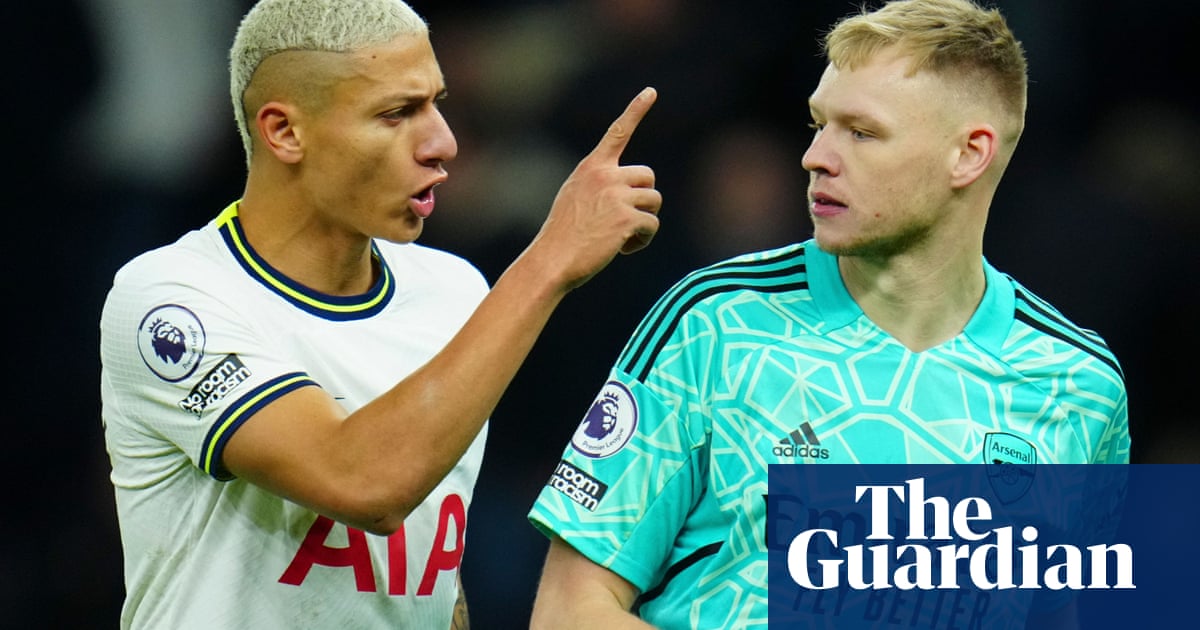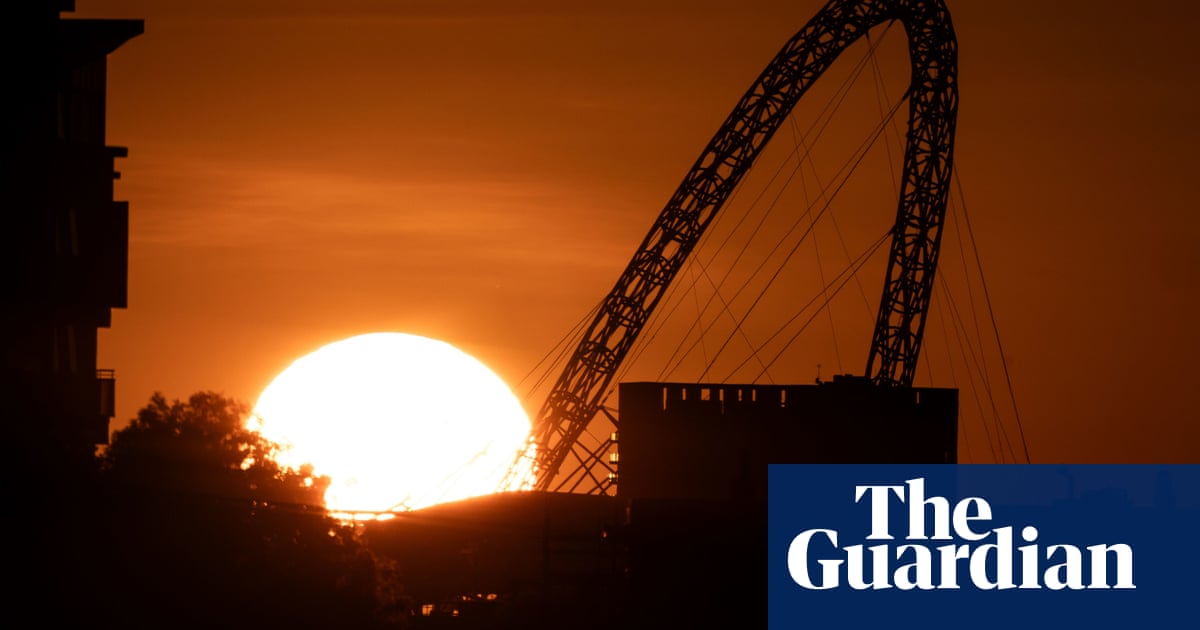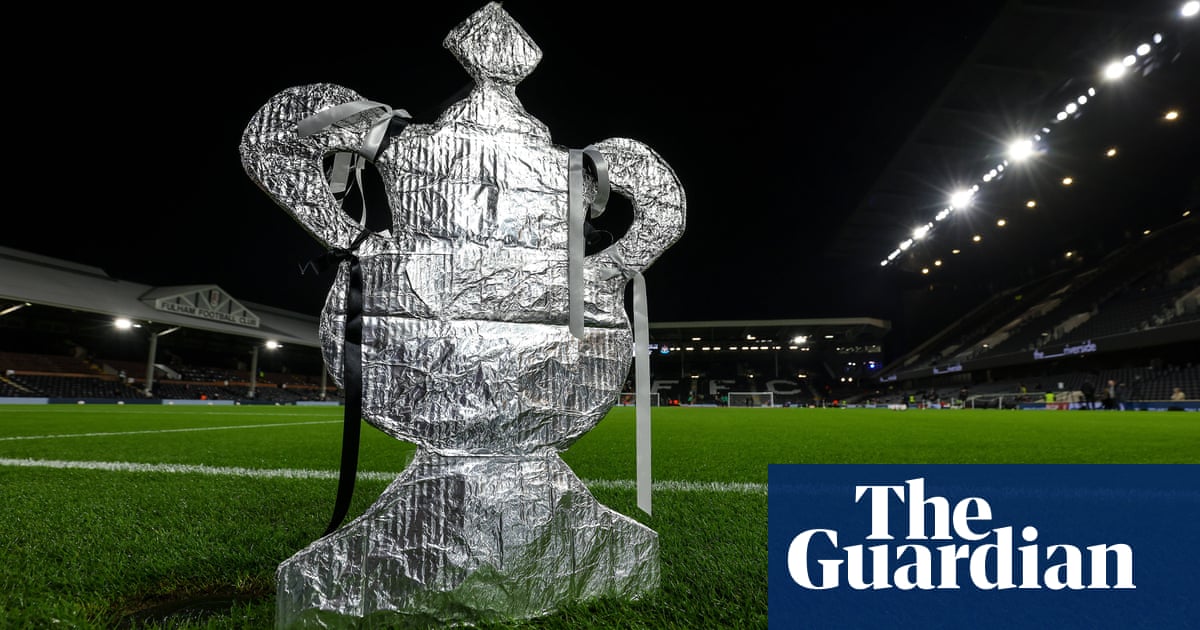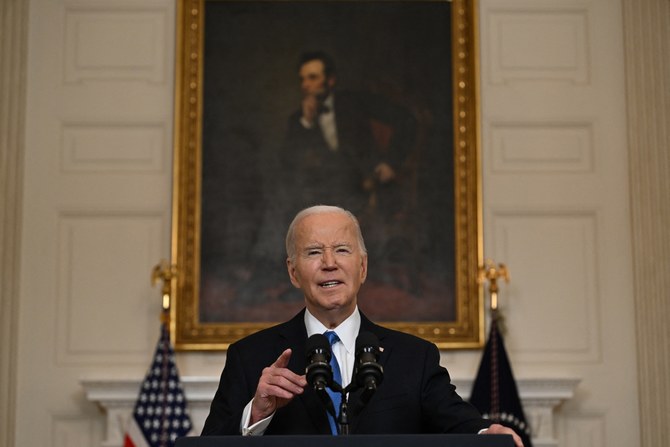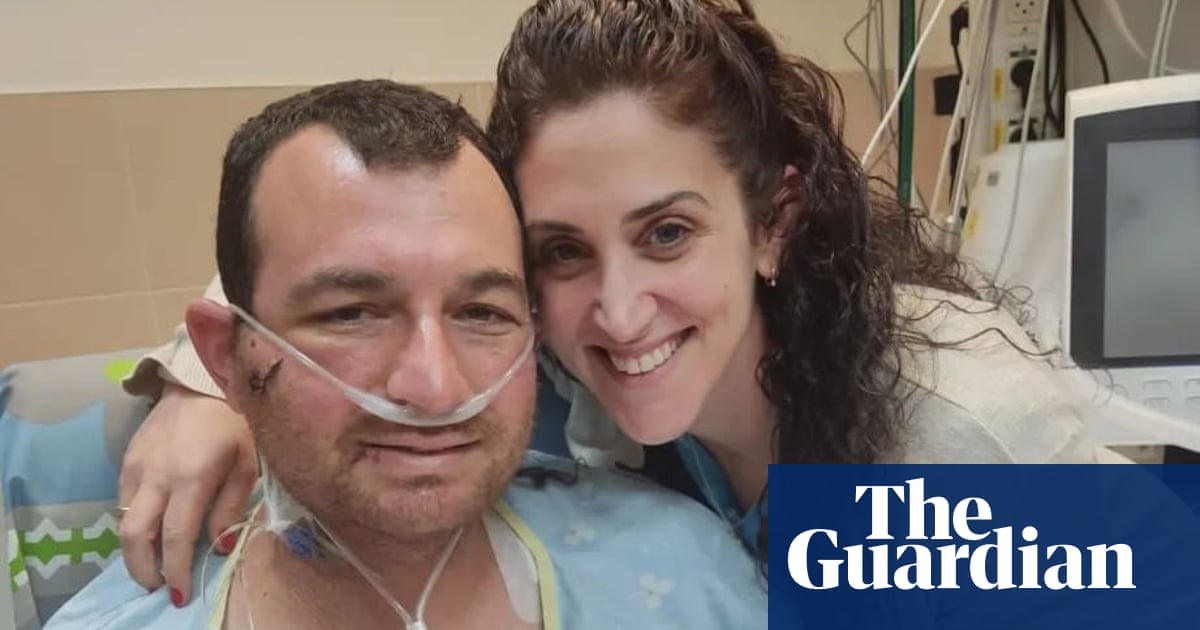
Lying in a hospital bed in Be’er Sheva, Ayal Young is beginning to feel stronger. He has a bullet lodged in his right cheek and he almost died when Hamas attacked his home at kibbutz Alumim last Saturday. His neighbours somehow rescued him after he was shot in the face and back, and he is on the mend after life-saving surgery.
“Families, children, men, women … they didn’t care who it was,” Young says. “They were not attacking soldiers. They were attacking people in their homes. They came and hurt whoever they saw. It didn’t matter if it was a soldier, a medic, a baby, a boy or a girl. They came to slaughter us. Luckily we could defend ourselves.”
Young is part of a guard unit at his kibbutz, which is about 3km from the Gaza Strip, and had access to weapons when Hamas attacked. While his wife and four young children managed to escape after hiding in a safe room, Young went out to protect his community. His actions almost cost him his life.
Now Young, a lifelong Tottenham supporter, is struggling to understand English football’s response to the attacks by Hamas. The Football Association has resisted calls to light the Wembley arch in the colours of the Israeli flag or the Jewish prayer shawl at the games against Australia on Friday and Italy next Tuesday. The Premier League waited until Thursday to make a statement on the attacks. It has been accused of failing to issue an unequivocal condemnation of Hamas. The Palestine Solidarity Campaign has welcomed the FA’s decision “and its resistance to pressure from the government and other political leaders”.
Young says: “I’ll use the word disgrace that they won’t light the arch, in blue and white, like they did for Ukraine. I’m not saying they shouldn’t have done it for Ukraine but if they stand for one side – they stood for France, for Belgium after the terror attacks – they should stand for us. It’s not like we went to bomb them and they attacked us back. We defended our homes and families.
“More than 1,000 terrorists came to slaughter us. They came with one mission: to slaughter us, terrorise us and make us fearful. My settlement could defend itself. Other settlements were not as lucky. Many were killed. Many were injured. Many were burned in their homes. They heard people were in safe rooms so they lit the homes.”
Young, whose support of Spurs comes from his parents, does not believe the FA holding a period of silence for all victims of the conflict before England played Australia is sufficient. “It’s not the same. The minute, people can take it however they want, for one side or the other. If you light the arch with two colours, you could light it with blue and white … not just because I’m a Tottenham fan and I like these colours.
“They should light it to give a statement that there is no place for racism. In the last four years they say that. That’s racism: not standing with the people who went out to defend their homes and to defend with their own life against terrorists who came to slaughter.”
Young recalls his experience in harrowing detail. “We are about 500 people in the kibbutz,” he says. “You split it into two main sections, the working area and the family area. At the beginning the terrorists came and shot the Nepalis, the foreign workers, we have living there. They killed two and injured around five. They threw grenades, shot.
“We took care of the injured Nepalis and took them into the safe room. Afterwards we heard a gunshot from the main entrance. We saw some soldiers who went by on the main road. They saw two cars taking terrorists out near the main entrance to the kibbutz and they shot them. They saved that area of the kibbutz because from there they would have continued to the families.
“We went to the main security room to get radios. My neighbour, who is in my unit, said he could see many terrorists running to the kibbutz.
We went to help him just outside my house. He got injured. Bullets in his hand. When I saw what he told us I was in shock. I could see two people just outside the fence shouting to about 16 terrorists running into the kibbutz. Me and another friend went to a different place we could defend better. I presume that’s when the terrorists slaughtered all the Thai and Nepalese workers.”
Young’s friend was shot in his left leg. “He continued fighting. I got shot in my cheek here. I shot back and killed whoever shot me. Later we discovered this was one of the commanders. Maybe that is one of the reasons they stopped. I got shot in my back, my lung, my shoulder. I couldn’t breathe, I was spitting blood. Every time I tried to speak I saw blood coming out my throat. I tried to say what happened to me on the radio. All my friends could hear was mumbling. But they understood. My friend who was shot in his leg told them where I was. They came to rescue me.”
After being treated by medics, Young and one of his friends were carried into a car and taken to hospital. “Driving out of the kibbutz the car got shot. They didn’t stop. They kept driving and saved my life. I got into the hospital on Saturday at noon and was straight to an operation. On Sunday they cleaned an infection near my lungs. Now I am getting better.”
Young was heartened to receive a supportive message from Manor Solomon, Tottenham’s Israeli winger, but he wants to see English football do more. “I expect every club in England, in Europe, to have a statement against it,” he says. “It’s wrong. Every club, the Premier League, has to have a statement against the racism, against the murdering that Hamas did.”





